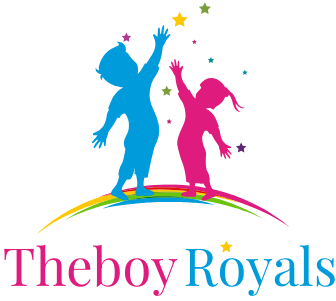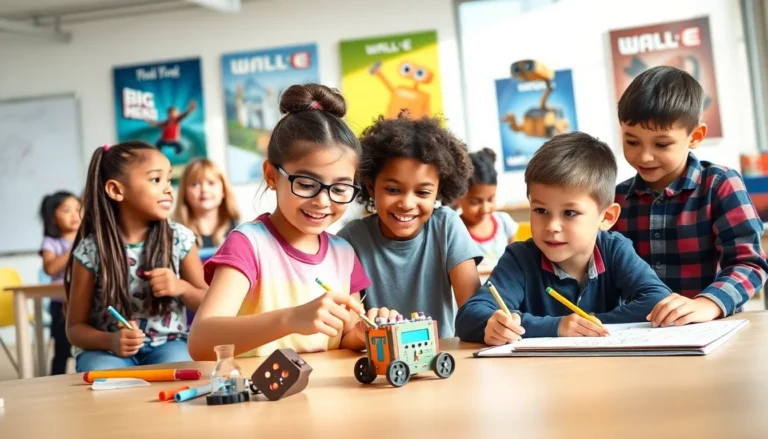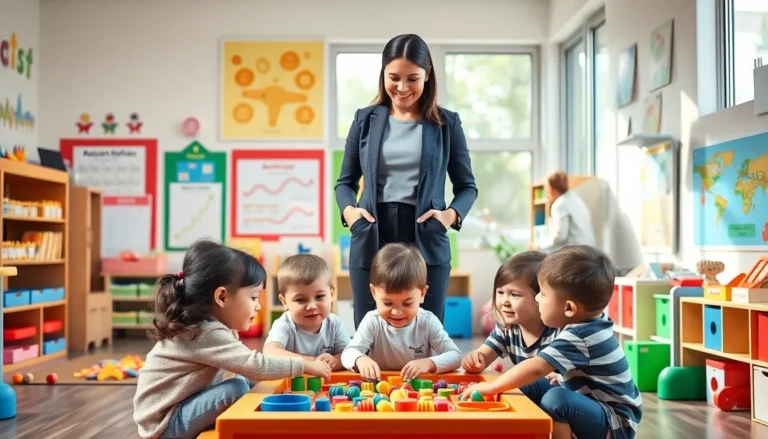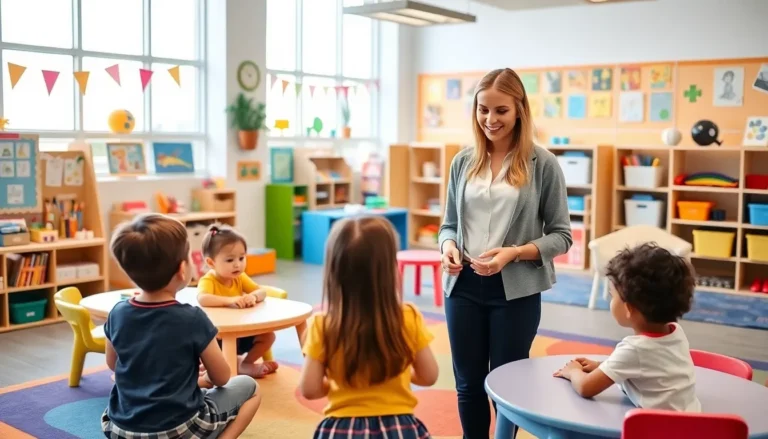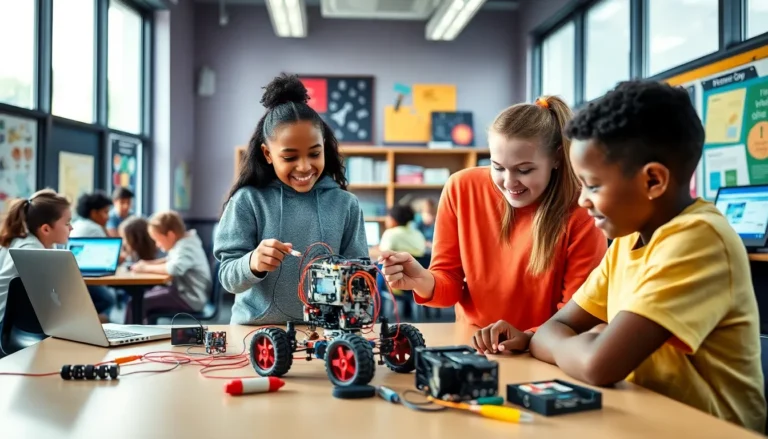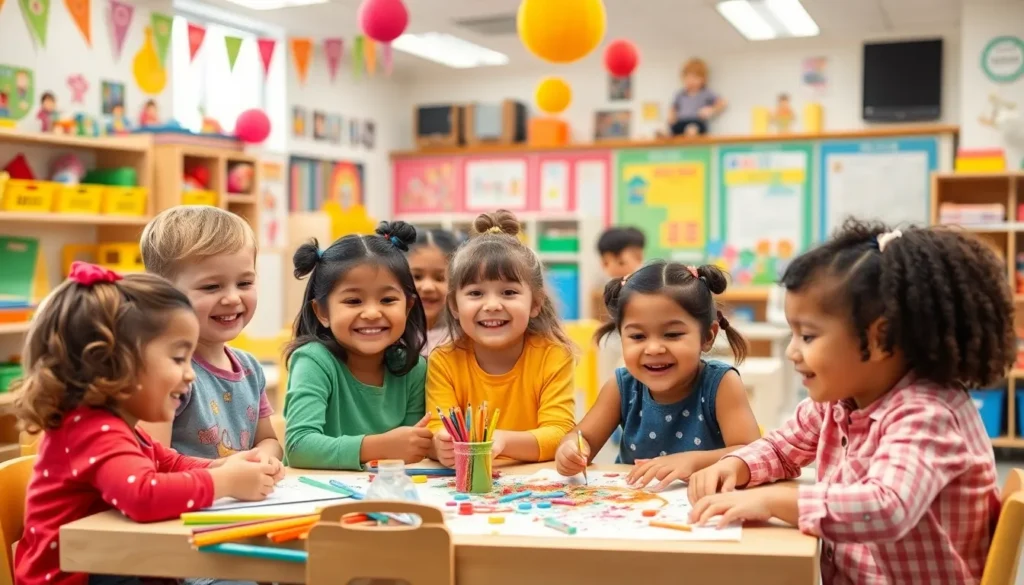Table of Contents
TogglePreschool activities play a crucial role in a child’s development, offering a blend of fun and learning that sets the foundation for future education. At this age, kids are naturally curious, and engaging them in creative and interactive tasks can spark their imagination while enhancing essential skills.
From arts and crafts to simple science experiments, the right activities can foster cognitive, social, and emotional growth. Parents and educators alike are always on the lookout for effective ways to keep children entertained while promoting their learning. By incorporating various engaging activities, they can create an enriching environment that nurtures a love for exploration and discovery.
Importance Of Preschool Activities
Preschool activities play a crucial role in shaping a child’s overall development. They provide a framework for learning that fosters curiosity and creativity while laying the groundwork for future educational success.
Cognitive Development
Cognitive development is enhanced through hands-on activities that stimulate critical thinking. Engaging in problem-solving tasks, puzzles, and games encourages children to think independently. Interactive learning experiences improve memory, attention span, and language skills. For instance, activities involving counting or recognizing shapes aid in developing foundational math skills. Studies show that children exposed to diverse cognitive activities tend to perform better academically in later years.
Social Skills
Social skills, essential for interacting with others, thrive in a preschool environment. Group activities like playing games or participating in group projects promote teamwork and cooperation. Children learn to share, take turns, and communicate effectively. Workshops and role-playing activities enhance empathy and emotional intelligence, as they encourage children to understand different perspectives. Research indicates that strong social skills in early childhood correlate with better relationships and success in school settings.
Types Of Preschool Activities
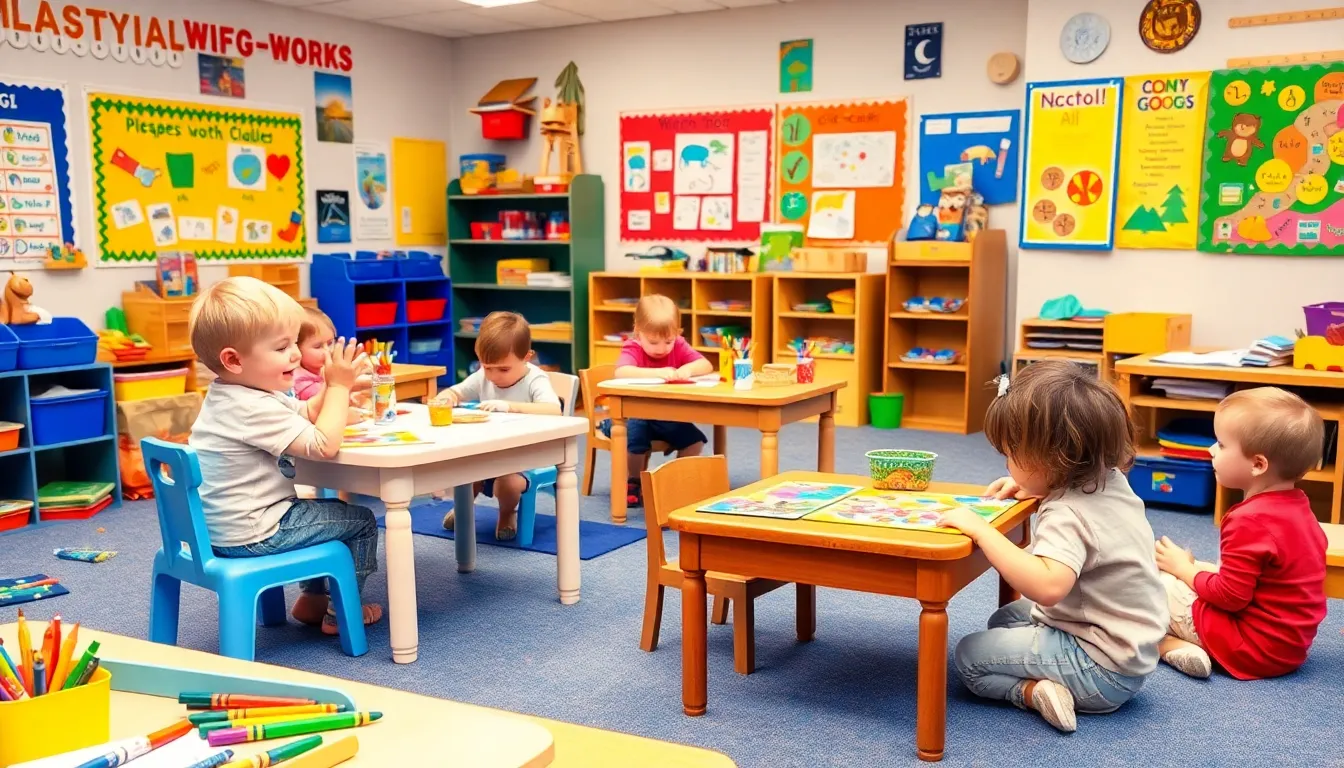
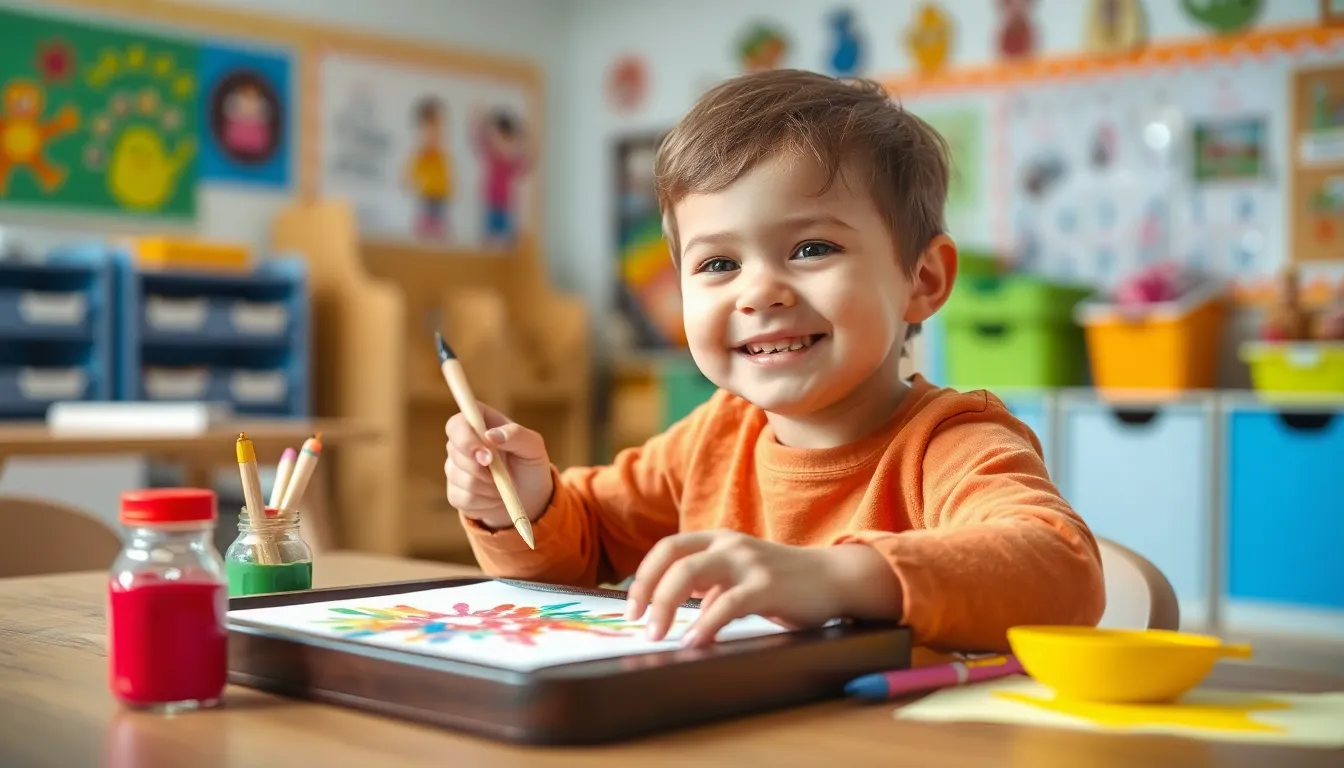
Preschool activities encompass a range of engaging tasks that facilitate child development across various domains. These activities include creative arts and crafts, physical activities, and educational games, each contributing uniquely to a child’s growth.
Creative Arts and Crafts
Creative arts and crafts activities enhance fine motor skills and encourage self-expression. Children use materials like paper, paint, and clay to create unique works, improving their hand-eye coordination. Projects such as drawing, cutting, and gluing support cognitive development while fostering imaginative thinking. For instance, a simple activity like finger painting enables children to explore colors and textures, stimulating sensory experiences.
Physical Activities
Physical activities bolster gross motor skills and overall health. Games like tag, obstacle courses, and structured playtime promote physical fitness while teaching children the importance of movement. Outdoor activities encourage exploration and social interaction, with children learning about teamwork and taking turns. Activities such as dancing or playing with balls also enhance coordination and balance, essential components of physical development.
Educational Games
Educational games serve dual purposes: they provide entertainment and promote learning. Games that involve numbers, letters, or shapes reinforce foundational skills necessary for future academic success. For example, board games that require counting or matching aid in developing mathematics and cognitive skills. Interactive storytelling and memory games improve language skills and enhance memory retention, making learning enjoyable and effective.
Effective Implementation Of Preschool Activities
Effective execution of preschool activities maximizes developmental benefits for children by creating an optimal learning environment and actively engaging parents and caregivers.
Setting Up The Environment
Creating a stimulating environment enhances preschool activities. Arrange areas for various activities, such as play, art, and reading, to encourage exploration. Choose furniture that is child-sized and accessible, ensuring safety and comfort. Use bright colors and stimulating visuals to attract children’s attention. Incorporate diverse materials like blocks, books, and art supplies to promote creativity and engagement. Ensure the environment remains organized and clutter-free for easy navigation. Adjust the setup based on seasonal themes or special events to keep activities fresh and exciting.
Involving Parents and Caregivers
Involvement of parents and caregivers enriches preschool activities. Encourage parents to participate in event planning and volunteer during activities. Provide regular updates on children’s progress and suggestions for at-home reinforcement of learned concepts. Share resources or workshops to guide parents on supporting early learning at home. Create opportunities for parents to work together on projects that foster community, like organizing events or creating shared learning resources. Include feedback from parents to adapt activities, ensuring they meet children’s evolving needs.
Evaluating The Impact Of Preschool Activities
Evaluating the impact of preschool activities is essential for understanding their effectiveness in fostering child development. Various assessment methods and success stories illustrate the positive outcomes of these programs.
Assessment Methods
Assessment methods for preschool activities focus on measuring developmental progress across cognitive, social, and emotional domains. Common approaches include:
- Observational Assessments: Educators observe children’s interactions and behaviors during activities. These observations provide insights into their skills, interests, and social interactions.
- Developmental Checklists: These tools evaluate specific skills such as fine motor development, language acquisition, and social communication. They help track progress over time.
- Portfolio Assessments: Portfolios compile children’s work and projects, showcasing their creativity and learning journey. This method emphasizes individual growth and emerging skills.
- Parent and Caregiver Feedback: Input from parents and caregivers offers valuable perspectives on children’s progress and experiences. Surveys and discussions facilitate effective communication regarding development.
Each method contributes to a comprehensive understanding of how preschool activities influence children’s learning and development.
Success Stories
Success stories highlight the transformative effects of preschool activities on children’s growth and learning. Examples include:
- Cognitive Gains: A preschool in Seattle noted improved literacy rates among children involved in storytelling and reading activities. After implementing a dedicated reading hour, educators reported a 30% increase in vocabulary among participants.
- Enhanced Social Skills: A program in Miami focused on cooperative games and team-building activities reported a 25% reduction in social conflicts among children. The emphasis on collaboration fostered teamwork and communication, leading to better interpersonal relationships.
- Emotional Resilience: A Chicago-based preschool integrated emotional intelligence workshops into their curriculum. Parents observed a significant increase in children’s ability to express emotions and cope with frustration, with 40% reporting improvements in emotional regulation.
These success stories underscore the effectiveness of thoughtfully designed preschool activities in cultivating essential skills for future learning and development.
